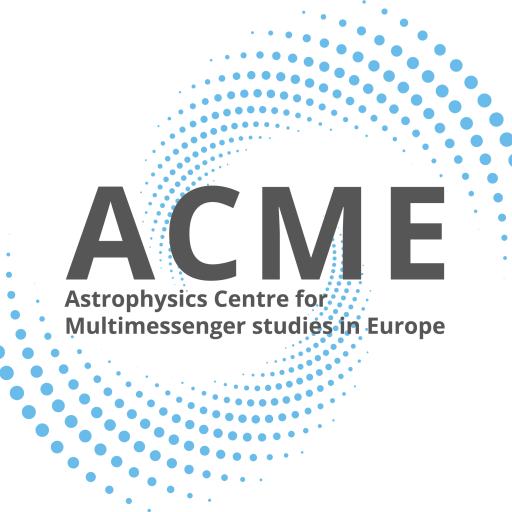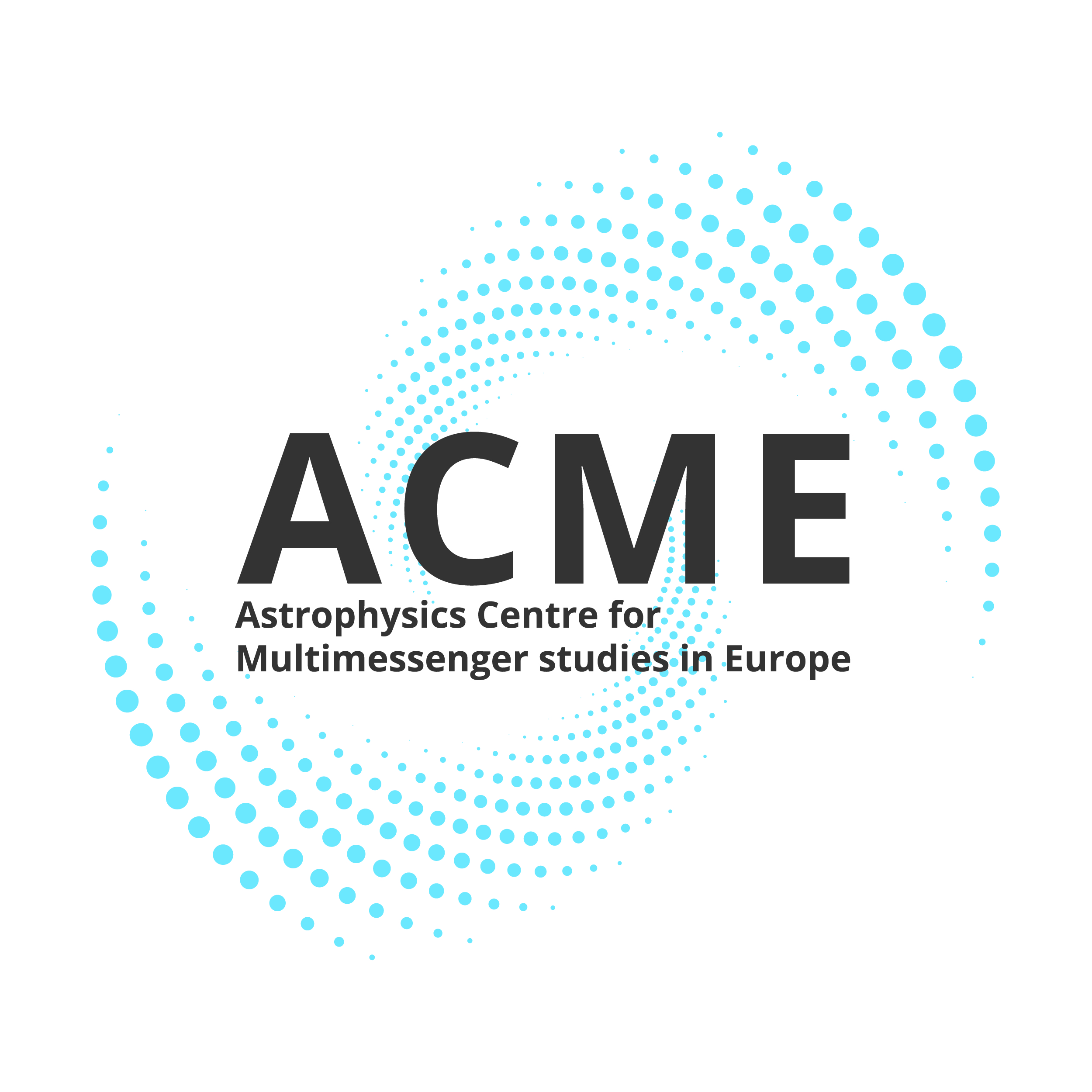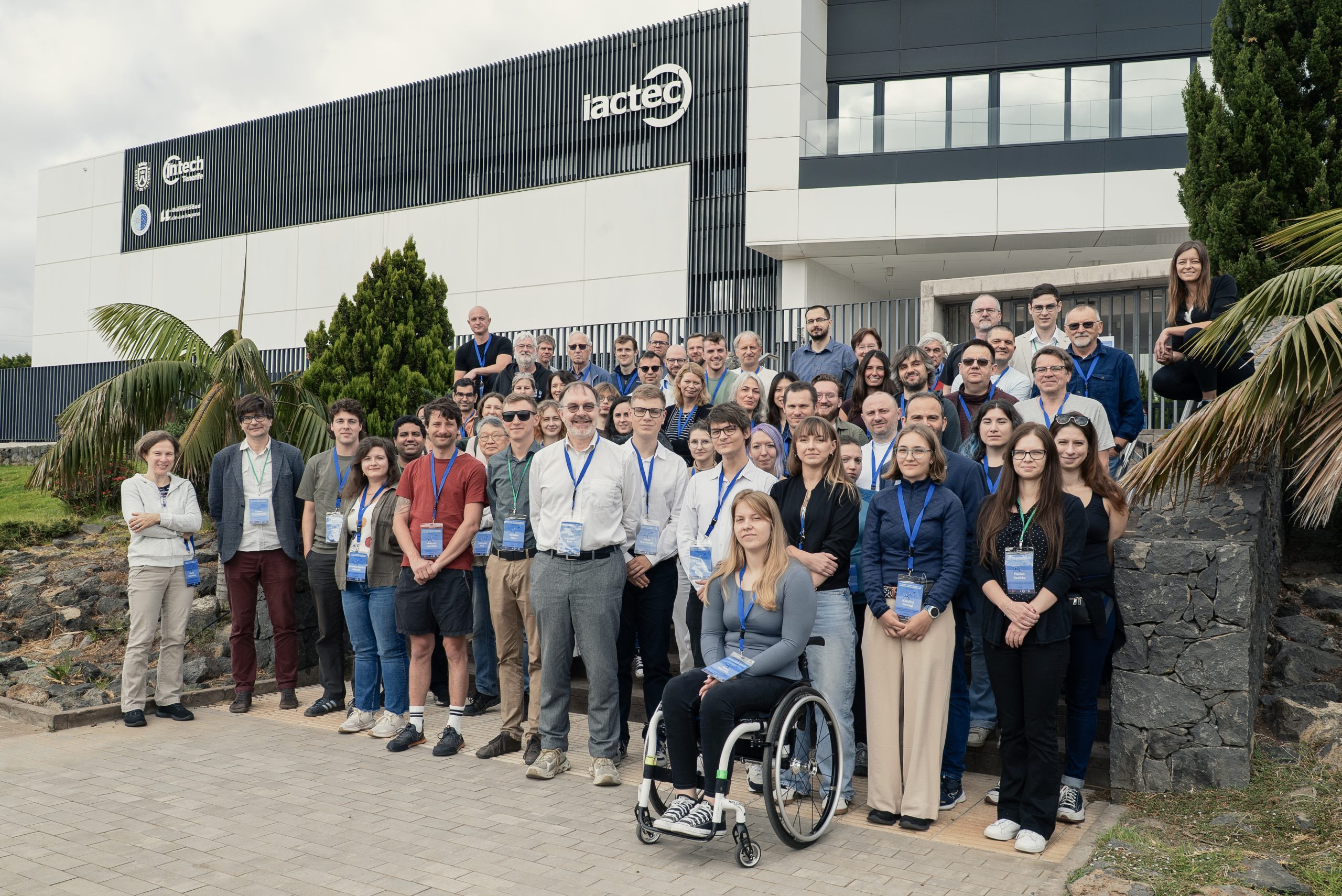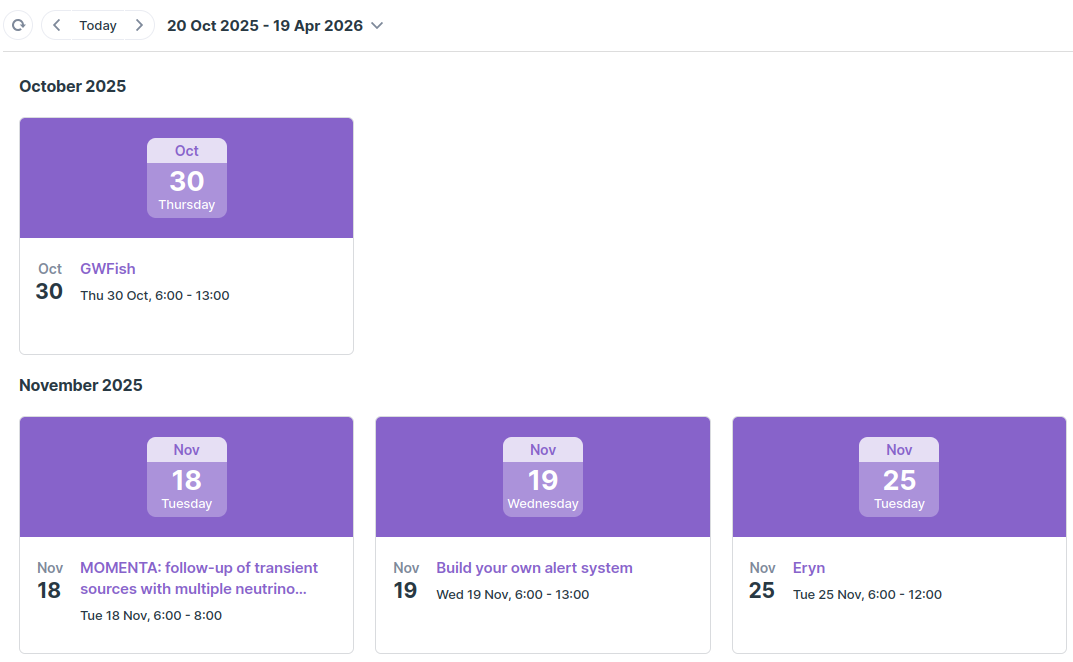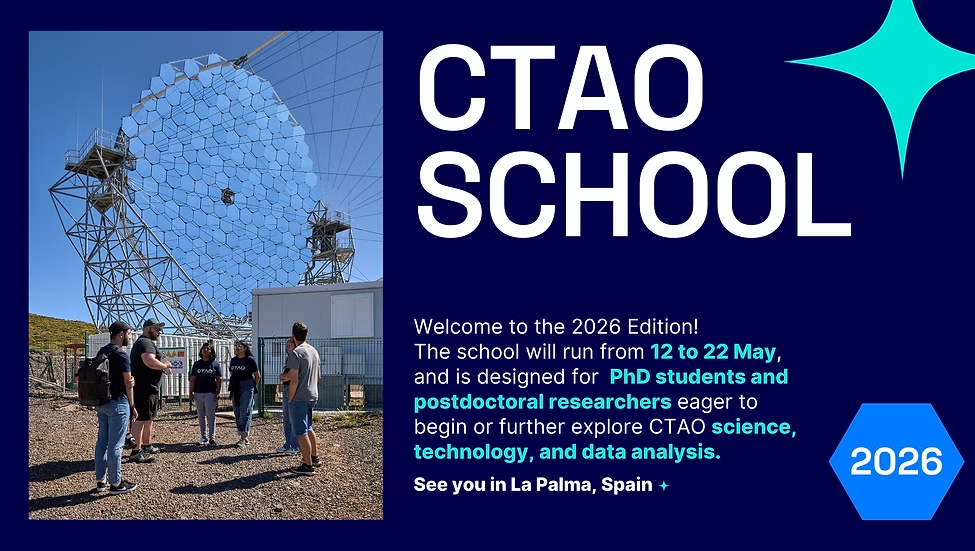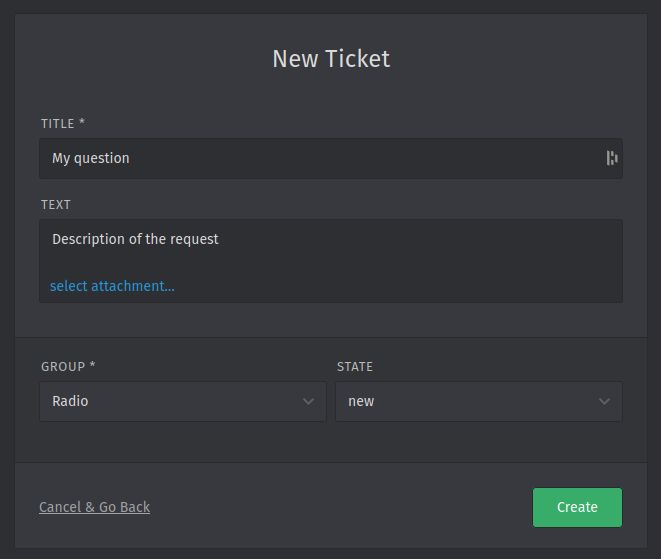Description
ACME (the Astrophysics Centre for Multi-messenger studies in Europe) is set up to realize an ambitious coordinated European-wide optimization of the accessibility and cohesion between multiple leading research infrastructures, offering access to instruments, data and expertise, focused on the new science of multi-messenger astrophysics
The ACME EU-funded project aims to implement the APPEC and ASTRONET European roadmaps’ recommendations and act as a pathfinder to broaden, improve and align access to the respective research infrastructure services and data, and assess and evaluate new models for better coordination and provision of at-scale services.
It will provide harmonized and inclusive transnational (TA) and virtual (VA) access to world-class RI. It will develop centres of expertise providing expert support to enable easier access for more researchers. The project will improve science data products management to facilitate both focused research goals and serendipitous discoveries, implementing FAIR approaches to broaden access. Similarly, it will also improve interoperable systems for rapid identification of astrophysical candidate events, and alert distribution to the network of RI and scientific consortia to optimize follow-up observations
Finally, ACME will provide training for a new and broader generation of scientists and engineers, and open the astrophysics and astroparticle physics data sets to other disciplines, such as environmental studies or marine biology for the undersea neutrino facilities, and increase citizen engagement in scientific research.
Latest News
News from the International Schools on Astroparticle Physic (ISAPP)
About ISAPP Since 2002, leading European institutions have advanced early-stage training in astroparticle physics through the International Schools on Astroparticle Physics (ISAPP). This initiative fosters student mobility, knowledge exchange, and research...
TNA – Visits to Centres of Expertise – 02 April 2026
This call aims to support research visits to European institutes that provide direct training and expert guidance in multi-messenger astronomy. The program covers a wide range of domains, including gravitational waves, neutrinos, cosmic rays, and photons across the...
Outcomes of the Gaia Alerts 2025 conference
The National Centre for Nuclear Research (NCBJ, Warsaw, Poland) was the main organiser of the Gaia Alerts 2025 conference, the 16th Gaia Science Alerts and ACME Time-Domain Workshop, from 29 September to 3 October 2025 at the Instituto de Astrofísica de Canarias (IAC)...
Start of hands-on sessions
Experts from the six Centres of Expertise are organizing a series of remote tutorials and hands-on sessions covering software packages, data analysis tools, observational techniques, and theoretical modelling in the context of multi-messenger astronomy. Each session...
3rd CTAO/MAGIC School (May 2026)
The CTAO School offers a unique opportunity for students and postdoctoral researchers to advance their knowledge and expertise in very high-energy (VHE) astrophysics. Participants will engage with experts, explore cutting-edge science topics, and gain practical...
Opening of the VA platform
The Astrophysics Centre for Multimessenger Studies in Europe ACME EU-funded project has officially launched its online platform for virtual access to multi-messenger expertise. This platform is now available to support the scientific community by providing access to...
